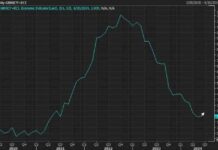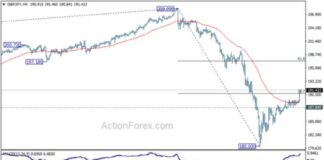Reasons Behind the Surging House Prices
The global real estate market is experiencing a significant surge in house prices, with countries like America, Australia, and Portugal leading the way. But what exactly is driving this sudden increase in property values? Several key factors are contributing to this trend, including:
1. Low Interest Rates: Despite the recent uptick in interest rates in some regions, overall, interest rates remain relatively low compared to historical averages. This has made borrowing more affordable for prospective homebuyers, leading to increased demand for housing and pushing prices higher.
2. Supply Constraints: In many parts of the world, there is a shortage of housing supply relative to demand. This imbalance has been exacerbated by factors such as restrictive zoning laws, limited available land for development, and a lack of new construction. As a result, competition for available homes has intensified, driving up prices.
3. Economic Growth: Strong economic growth in countries like the United States and Australia has boosted consumer confidence and household incomes. As people feel more financially secure, they are more willing to invest in real estate, further fueling the rise in house prices.
4. Foreign Investment: Global real estate markets have become increasingly interconnected, with investors from around the world seeking safe havens for their capital. Countries like Portugal, with attractive property markets and favorable tax policies, have seen a surge in foreign investment, driving up prices.
Trends in the Surging House Prices
The current housing boom is characterized by several notable trends that are shaping the market dynamics and influencing price movements. These trends include:
1. Urbanization: As more people flock to urban areas in search of employment opportunities and amenities, demand for housing in cities has increased significantly. This trend has led to a phenomenon known as “urban gentrification,” where previously neglected neighborhoods are revitalized, pushing up property values.
2. Tech Boom: The rise of technology hubs like Silicon Valley in California has had a profound impact on local real estate markets. Tech companies and their employees have driven up demand for housing in these areas, leading to skyrocketing prices and fierce competition for limited inventory.
3. Luxury Market Surge: High-end properties in prime locations have seen a surge in demand from wealthy individuals and foreign buyers looking for prestigious addresses and luxury amenities. This trend has driven up prices in exclusive neighborhoods and waterfront properties, creating a two-tiered housing market.
4. Aging Population: In many developed countries, the population is aging, leading to increased demand for retirement homes and age-appropriate housing. This demographic shift has fueled demand for senior living facilities and age-restricted communities, driving up prices in these segments of the market.
5. Sustainability Focus: With growing concerns about climate change and environmental sustainability, there is a rising demand for eco-friendly and energy-efficient homes. Properties with green features like solar panels, energy-efficient appliances, and sustainable building materials command premium prices, reflecting a shift towards more environmentally conscious living.
Implications of the Housing Boom
While the surge in house prices may bring benefits to homeowners and investors, there are also potential downsides and risks associated with this trend. Some of the implications of the current housing boom include:
1. Affordability Challenges: Rising house prices can make homeownership increasingly unattainable for first-time buyers and lower-income households. This can exacerbate income inequality and lead to social disparities in access to housing.
2. Speculative Bubbles: Rapidly escalating property values may be driven by speculative investment rather than genuine demand, potentially creating a bubble that could burst and lead to a market crash. Investors should be cautious of investing in overheated markets and be aware of the risks involved.
3. Housing Market Stability: A sharp correction in house prices could have broader implications for the economy, affecting consumer spending, mortgage lending, and overall financial stability. Policymakers need to monitor the housing market closely and implement measures to prevent a housing crisis.
4. Regional Disparities: The housing boom may exacerbate regional disparities in property values, with certain areas experiencing disproportionate price increases compared to others. This can create challenges for policymakers in addressing housing affordability and promoting balanced development across regions.
Overall, the surge in house prices presents both opportunities and challenges for the global real estate market. Understanding the reasons behind this trend and the implications it carries is essential for investors, policymakers, and individuals looking to navigate the dynamic landscape of the housing market.

















